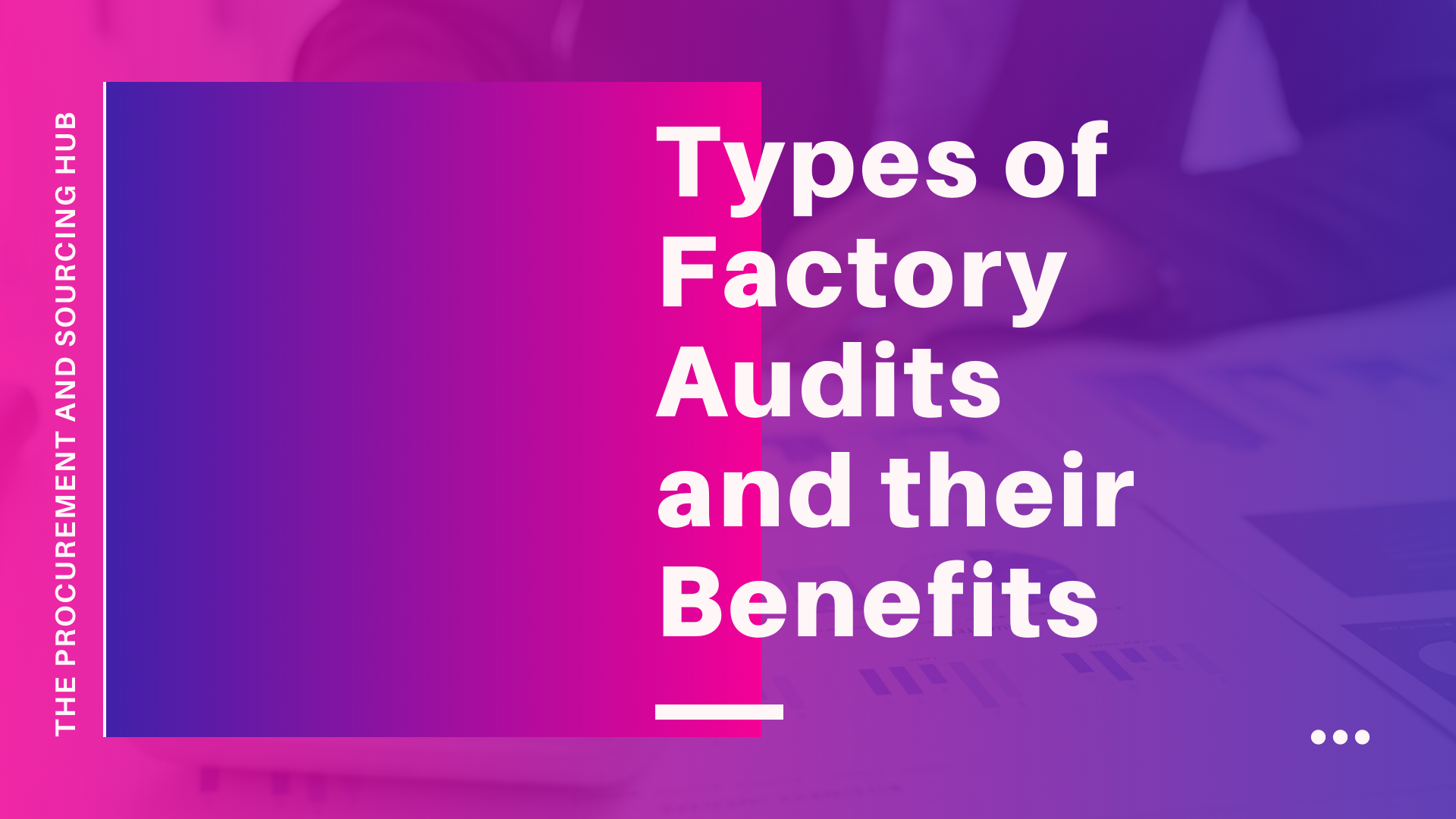Ensuring that your suppliers are effectively capable of aligning with your business goals is truly an achievement. And one of the best ways to know if your suppliers can integrate their operations with your working principle is by conducting factory audits. Factory audits by supplier auditors can give a full and clear picture of whatever the suppliers are planning to do and in which way they will execute their task.
In this context, you will learn about the five main types of factory audits and how they can benefit your organization.
Manufacturing Audit
When a manufacturing auditor conducts a manufacturing audit, he determines if the selected vendor can meet your organization’s specifications when producing the product, address the costly supply chain disruptions, and effectively prevent them once they launch the product.
Benefits:
- Check if your social policies will align with those of the supplier’s
- Examine the factory management competence by the suppliers
- Verify if the supplier can suitably produce the desired product and with the same standard
- Mitigate the potential ethical and operational hazards
Ethical Audit
Conducting ethical audits will ensure that work is appropriately done based on international standards and client specifics. An ethical auditor will also make sure that social accountability is reviewed.
Benefits:
- Ensure decent workers are accomplishing the task
- Help meet statutory requirement and understand ethical compliance
- Improve customer loyalty and prevent illegal subcontracting
Structural Audit
Conducting a structural audit will ensure supplier’s premises, manufacturing areas, and buildings are safe and are constructed following relevant codes and conditions. Quality control subcontractors will assess the integrity and fire safety measures of the buildings.
Benefits:
- Prevent catastrophic injury by ensuring safe manufacturing conditions
- Review statutory compliance and ensure the safety of employees
- Prevent supply chain disruption and protect brand reputation
Environmental Audit
An environment auditor will make sure that the environment in which the products are being manufactured is safe and secured and the manufacturing process does not harm the environment by any means. He will evaluate the laws and regulations that comply with the manufacturing conditions and relies on the protection of the environment.
Benefits:
- Quality control subcontractors will assure you that they will follow your company’s compliance requirements and international requirements
- Perform in a way that results in improved environmental conditions
- Provide the environmental performance of your supplier by integrating lab testing with audit results
Food Supplier Audit
The food supplier audits will ensure good manufacturing processes are followed when food is produced at the factories. The supplier audits are designed in a way that examines the hygiene conditions of the food manufactured in the factories. They evaluate the quality of the food and make sure the food quality is good and safe for consumption.
Benefits:
- Demonstrate the commitment of suppliers to the quality and safety of the food produced
- Improve the efficiency of the operations
- Increase the confidence of customers
- Ensure if the suppliers adhere to the government regulations
These are the five main types of factory audits and the proper conduction of these audits by supplier auditors can lead up to your organization’s ultimate goal of protecting your brand image.

Comments
Post a Comment